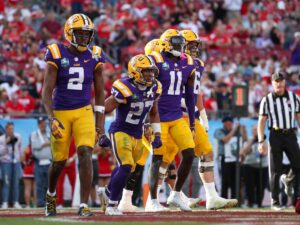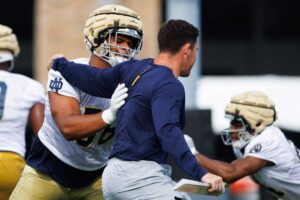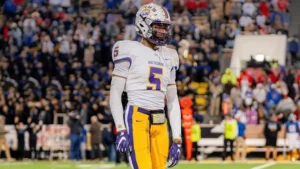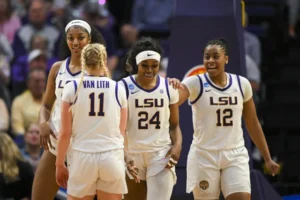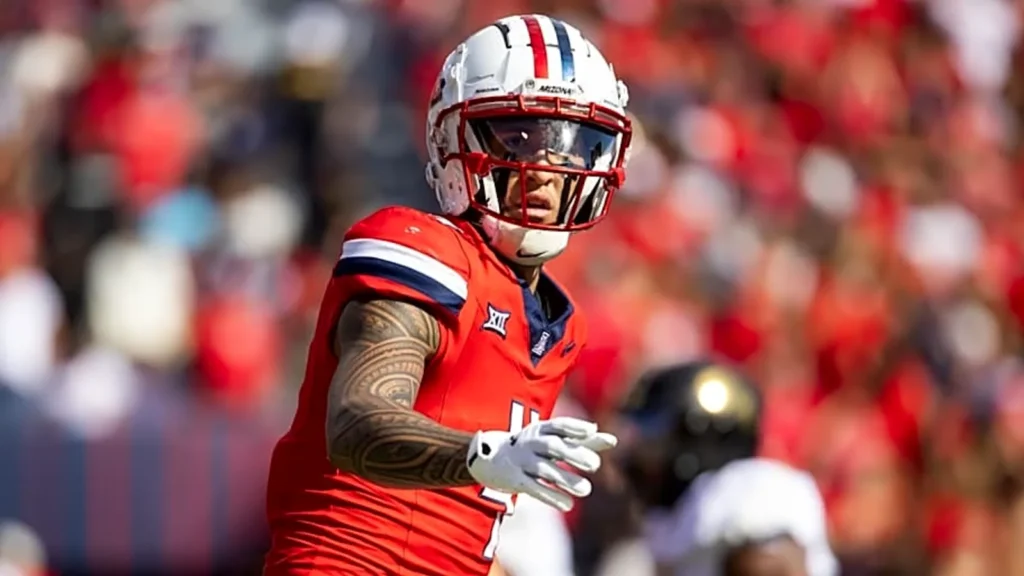
A Major Reason Why the New England Patriots Are Suggested to Avoid the Star Wide Receiver?
The New England Patriots have long been one of the most successful and strategic franchises in the NFL, especially under the leadership of Bill Belichick. With a focus on team-oriented football and disciplined play, the Patriots are known for making calculated decisions that prioritize long-term success. However, when it comes to high-profile players, particularly star wide receivers, there have been discussions about whether the team should pursue or avoid such players. This article will examine the key reasons why the Patriots are often advised to steer clear of star wide receivers, despite their obvious talent and potential to elevate the team.
1. System Fit and Offensive Philosophy
Bill Belichick’s coaching philosophy centers around adaptability and efficiency, often favoring a well-rounded team over individual star power. The Patriots have historically built their offense around a strong system, one that emphasizes short, quick throws, route precision, and ball distribution rather than relying on a single superstar.
Star wide receivers, typically known for their ability to dominate a game with their skill, often demand the ball in high-volume, high-leverage situations. However, such a focus can disrupt the Patriots’ team-first approach.
Belichick’s System: Over the years, Belichick has designed offenses that are versatile and hard to predict. The Patriots’ offensive system doesn’t rely heavily on one player to carry the workload, but instead on a committee approach where every player has a role, and success depends on working as a unit. In this context, a star wide receiver with a “me-first” attitude could potentially disrupt the harmony of the offense.Diversity of Targets: The Patriots prefer to have a multitude of targets at their disposal, from tight ends to running backs, and not just rely on wide receivers. For example, in the Tom Brady era, the team utilized a balanced passing attack that spread the ball to multiple receivers. This makes it harder to justify bringing in a player who expects a high volume of targets every game.
2. Personality and Locker Room Dynamics
The success of the Patriots is not just due to their offensive schemes but also their locker room culture. Over the years, New England has been known for its “Patriot Way,” which emphasizes team-oriented behavior, discipline, and mutual respect. A star wide receiver often comes with baggage, including a high-maintenance personality, which may not be the ideal fit for a team that thrives on collective effort rather than individual spotlight.
- Ego Management: Many star wide receivers have a reputation for being divas or needing to be the focal point of an offense. This could cause friction in the locker room, especially if the player is used to being the top target in previous teams. The Patriots have been successful because of their ability to keep egos in check and focus on the team rather than individual accolades.
- Off-Field Issues: Some star wide receivers have a history of off-field issues that could cause distractions for a team. For example, players who engage in social media drama or seek attention through controversial means could become a disruptive influence in a team-oriented environment like the Patriots. Belichick has always been careful in selecting players with character that align with the Patriots’ culture, and an attention-seeking wide receiver may be counterproductive to that.
3. Contract and Financial Flexibility
Star wide receivers often come with a hefty price tag. In a salary-cap league like the NFL, investing heavily in one player, particularly at a position that doesn’t necessarily guarantee success in Belichick’s system, could prevent the team from addressing other areas of need.
High Salary Demands: A top-tier wide receiver often commands a large contract, potentially making them one of the highest-paid players on the team. Given the Patriots’ tendency to maintain a balanced payroll and ensure that they have financial flexibility to make moves across all positions, this could be a significant hindrance. Signing a star wide receiver might limit their ability to improve other key areas, such as the offensive line, defensive backfield, or even quarterback, which are areas Belichick has historically prioritized.Cap Space and Future Flexibility: The Patriots have a track record of avoiding long-term, big-money contracts, especially with players who don’t fit their system. By allocating a significant portion of their salary cap to one player—such as a star wide receiver—the Patriots might not have the flexibility to make mid-season acquisitions or plan for future seasons, especially if the wide receiver’s performance doesn’t meet expectations.
4. Risk of Injury and Long-Term Commitment
Wide receivers, especially those with explosive speed and size, are prone to injuries. The position itself demands physicality, and injuries can derail a player’s career quickly. While star wide receivers are often valuable assets, the risk of a significant injury may not justify the financial and strategic investment.
Longevity Issues: The NFL is a violent sport, and wide receivers are particularly vulnerable to knee injuries, hamstrings, and concussions. Given the Patriots’ emphasis on long-term planning, committing to a player who might be sidelined for a significant portion of a season could be detrimental.Injury History: Many star wide receivers come with a track record of injuries. Teams like the Patriots, who rely on a well-oiled machine where every part of the offense is crucial, might shy away from a player with a history of injuries, knowing the risk of losing that player during a key part of the season.
5. Draft and Development of Young Talent
Another factor that plays into why the Patriots might avoid pursuing a star wide receiver is their strong focus on developing young talent through the draft. Rather than signing established stars, Belichick and his team have built a reputation for finding value in under-the-radar prospects and coaching them up to succeed in New England’s system.
Development of Young Players: The Patriots have been successful in identifying and developing players in the later rounds of the draft. By focusing on developing young wide receivers who fit their system, they avoid the risk of paying for a player’s past performance rather than their future potential. This allows New England to maintain a stable and growing roster without being tied to one player’s contract.System Fit Over Talent: In recent years, the Patriots have shied away from signing big-name wide receivers, preferring to develop and fit players who can contribute to their system. This emphasis on finding players who are willing to work hard and develop into key contributors, rather than relying on established stars, allows the team to keep their roster flexible.
6. Changing League Dynamics and Strategic Trends
The NFL is constantly evolving, and the importance of the wide receiver position has shifted in recent years. While top-tier wide receivers are still valuable assets, their impact on a team’s overall success is not as profound as it once was. The Patriots, always adaptable to changing trends, may be wary of investing heavily in a position that, in their system, is not as vital as other roles.
Wide Receiver Position Evolution: While a star wide receiver might elevate certain offenses, the Patriots have excelled without one. The NFL is moving towards a more balanced, run-heavy approach, and Belichick has adjusted to this trend. Teams that rely on a heavy passing game and a singular wide receiver are often one-dimensional, which makes them easier to defend. The Patriots’ ability to diversify their offensive approach with multiple weapons—tight ends, running backs, and a committee of wide receivers—has helped them succeed.Shifting Trends Toward Balanced Offenses: Teams that rely on a “star” wide receiver often struggle when facing strong defensive teams that are capable of neutralizing that player. The Patriots have traditionally favored a balanced offense that can keep defenses guessing and adjusting on the fly. By avoiding a star receiver, they can continue to operate in a way that minimizes the risk of becoming predictable.
While star wide receivers are undoubtedly talented and can provide a significant boost to an offense, the New England Patriots are often advised to avoid such players due to their system fit, locker room dynamics, financial flexibility, injury concerns, focus on player development, and evolving trends in the NFL. The Patriots have built their success on a philosophy that emphasizes teamwork, system-based play, and long-term planning, which can sometimes be at odds with the demands of high-profile individual players. By continuing to focus on collective effort and versatile roles, the Patriots maintain a competitive edge in a league that is increasingly reliant on star power. Ultimately, their ability to avoid the temptation of high-profile acquisitions has allowed them to consistently build successful teams without being held hostage by one player’s contract or personality.
